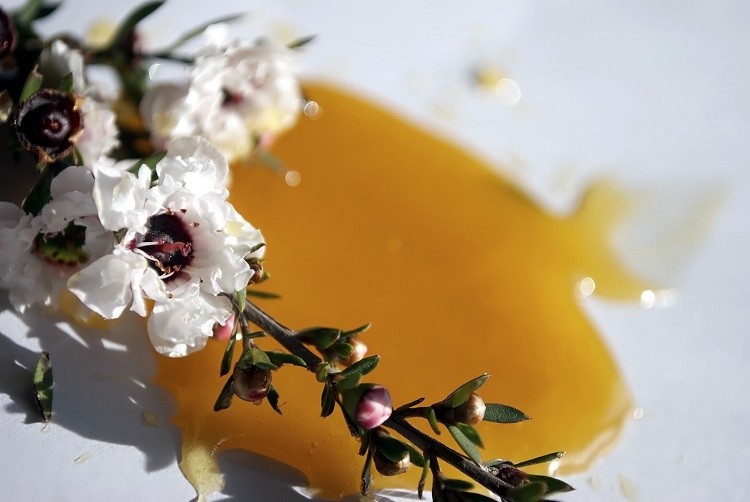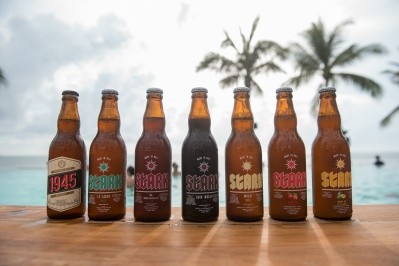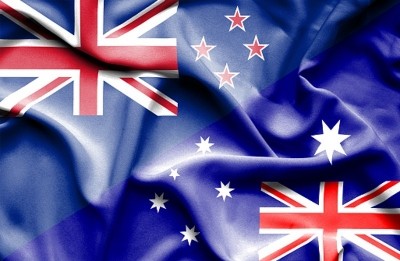‘A laughably self-serving study’: Industry backlash over fake manuka honey claims

Earlier this year, New Zealand’s Unique Mānuka Factor Honey Association (UMFHA) conducted scientific testing across the UK and US to verify that ‘manuka honey’ sold on shelves overseas is, as the product says, actually mānuka honey.
The UMFHA definition of mānuka aligns with that of New Zealand’s Ministry for Primary Industries: honey produced by bees collecting nectar from the manuka plant (Leptospermum scoparium), which is found growing throughout the country.
All 46 manuka brands produced outside of New Zealand failed the test, which for the UMFHA, means they did not come from the tree and nectar associated with supporting good health.
The report has sparked industry backlash, notably from the Australian Manuka Honey Association (AMHA), who contends the UMFHA’s ‘laughably self-serving study’ intends to deliberately mislead consumers that the only authentic manuka honey comes from New Zealand.
‘It’s the MGO content, not the country of origin, that matters’
Manuka honey is revered for its purported health benefits. Containing antibacterial properties, the honey is thought to support wound-healing and gut health. The premium honey is amongst the most expensive worldwide.
In Australia, the AMHA awards a Mark of Authenticity to products that are pure, ‘natural’ manuka honey, produced entirely in Australia and tested by an independent approved laboratory to ensure it meets minimum standards of naturally occurring methylglyoxal (MGO) and dihydroxyacetone (DHA).
“These compounds are all naturally occurring exclusively in authentic manuka,” explained the AMHA. “The level of MGO determines the antibacterial potency of the honey, while the amount of DHA shows that this potency was produced naturally as the bees collected nectar from active manuka plants.”
Understandably, therefore, the AMHA takes issue with the UMFHA’s assertion that ‘manuka’ honey produced outside of New Zealand and not exclusively collected form a single variety of Leptospermum species is inauthentic, particularly since the Leptospermum scoparium is a plant ‘originally from Australia’.
The AMHA argues that manuka honey can be gathered from any of the sub-species of the Leptospermum family, including the 85 cultivars found in Australia.
“Consumers buy manuka honey because of its MGO content, which gives the honey its unique antibacterial properties, not because it comes from Australia or New Zealand,” said AMHA chairman Dr Ben McKee.
“We are fortunate that with the greater diversity of Leptospermum cultivars found in Australia, Australian beekeepers can produce manuka honey with particularly high MGO levels.”
Australian manuka honey brings in lawyers
New Zealand producers have previously tried to gain exclusive right to the term ‘manuka honey’ in a range of jurisdictions the UK, the US and China. After a five-year-long legal battle with their Australian counterparts, New Zealand producers withdrew from the trademark dispute in late 2022.
“Having had no success through legal channels, they have reported to a misleading and anti-competitive publicity campaign,” responded Dr McKee. “It’s simply sour grapes following their unsuccessful attempts to exclude other producers from the market.”
The AMHA said it has been ‘forced’ to involve lawyers in the interest of protecting Australia’s manuka honey industry. The authentication body has served the UMFHA an order to ‘cease and desist’ making assertions that the only authentic manuka honey comes from New Zealand.
“This misleading campaign has serious consequences for our hardworking Australian beekeepers who have ensured Australian manuka honey is sought after by consumers and leading retailers around the globe,” said Dr McKee.
“While we don’t enjoy conflict with the New Zealand industry, we will not allow them to portray our product as somehow inauthentic or inferior, especially when the scientific evidence shows Australia manuka is as potent, if not more than, New Zealand manuka honey.”
The UMFHA told FoodNavigator it is aware of the actions of the AMHA and is seeking further information from them before making any comment.




















